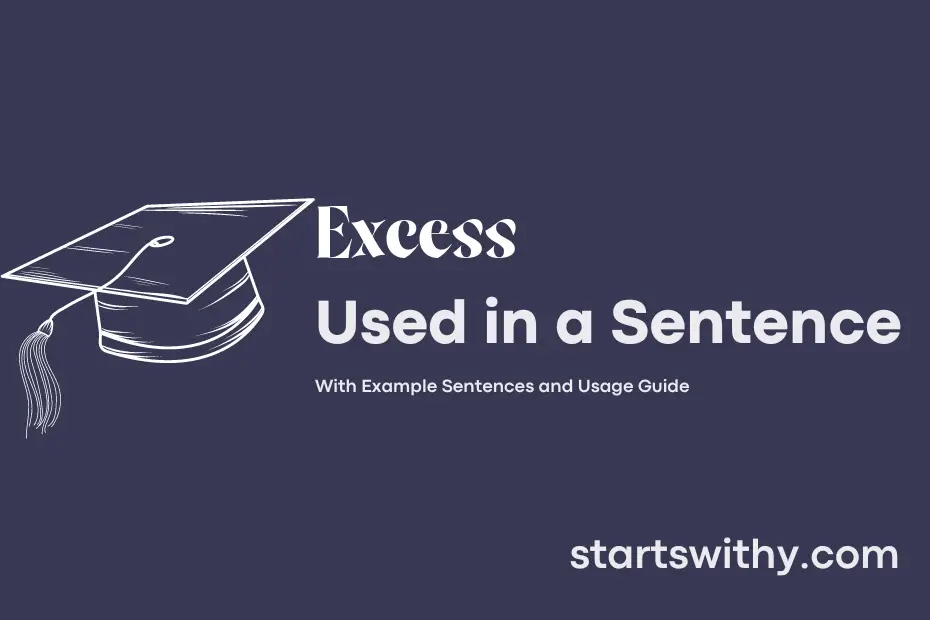Excess means an amount or quantity beyond what is considered necessary or normal. When something is in excess, it surpasses the required limit, often leading to a surplus or an imbalance.
In everyday life, we encounter situations where excess can be detrimental, whether it’s in the amount of food we consume, the time we spend on screens, or the possessions we accumulate. Understanding how excess can impact various aspects of our lives is crucial for maintaining a healthy balance and making mindful choices.
7 Examples Of Excess Used In a Sentence For Kids
- Excess sugar is not good for your health.
- It is important not to eat excess candy.
- Too much excess screen time can hurt your eyes.
- We should not waste food by cooking excess.
- It is not good to buy excess toys that you do not need.
- Be careful not to spend excess money on things you don’t need.
- We should always drink water to wash away the excess salt in our bodies.
14 Sentences with Excess Examples
- Excess partying can lead to poor academic performance.
- It is important to avoid excess caffeine consumption to maintain a healthy lifestyle.
- Many college students struggle with excess procrastination when it comes to studying.
- Budgeting is key to avoid excess spending on unnecessary items.
- Excess social media usage can negatively impact mental health.
- It is important to balance social life with academics to avoid excess stress.
- Some students struggle with excess alcohol consumption in college.
- Proper time management can help avoid excess last-minute cramming for exams.
- Getting enough sleep is important to prevent excess tiredness during classes.
- Excess junk food consumption can lead to health problems in the long run.
- It is important to communicate with roommates to avoid excess conflicts.
- Student athletes should be careful not to push themselves into excess training.
- Excess use of online streaming services can result in distractions from studying.
- Joining too many clubs and organizations can lead to excess commitments and stress.
How To Use Excess in Sentences?
To use the word “Excess” in a sentence, you must first understand its meaning. Excess refers to an amount or quantity that is more than what is considered necessary or usual.
When constructing a sentence using Excess, remember it can be used as a noun or an adjective. For example, as a noun: “The excess of food at the party was donated to a local shelter.” In this sentence, Excess is used to describe the surplus amount of food.
Alternatively, when Excess is used as an adjective, it describes something that is more than what is considered appropriate or acceptable. For example: “The student’s excess talking in class disrupted the lesson for others.” Here, Excess describes the student’s inappropriate amount of talking.
It’s essential to ensure that the sentence is grammatically correct and that Excess is used in the right context to convey the intended meaning. Practice using Excess in various sentences to become more familiar with its usage and nuances.
Overall, using Excess in a sentence can help convey situations where there is too much of something, emphasizing abundance or overindulgence. Remember to keep practicing to improve your understanding and usage of the word Excess effectively.
Conclusion
In conclusion, sentences with excess can be overwhelming and hinder clarity in communication. When a sentence contains too much information or unnecessary details, it can confuse the reader and dilute the intended message. It is important to strive for concise and precise sentences to ensure that your writing is clear and effective.
By being mindful of the information included in each sentence and avoiding excess, writers can improve the readability and impact of their work. Remember to focus on conveying your message in a succinct and straightforward manner, eliminating any unnecessary words or details that may detract from the overall clarity of your writing.



